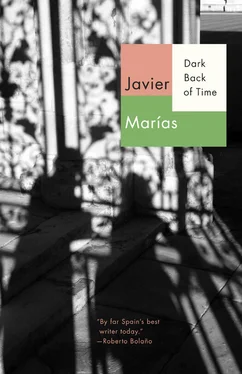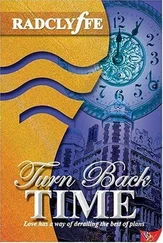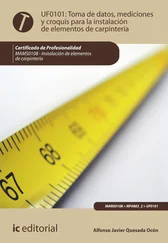Ewart was born on May 19, 1892, the son of Herbert Brisbane Ewart and Lady Mary Ewart, known as “Molly,” who resided at number 8, West Eaton Place, in Belgravia, one of the most distinguished areas of London. His father, who was neither poor nor at all rich, came from a very notable family of military men, a type that wasn’t lacking in his mother’s family, either: Wilfrid’s maternal great-grandfather was General Sir William Napier, author of the monumental History of the War in the Peninsula , which we know in Spain as the War of Independence, and in which, of course, he had a conspicuous role; the six hefty volumes of this work were one of several items Don Juan Benet asked me to find for him during my stay in Oxford, with an eye to taking some inspiration from that Peninsular War — when salt rained and skulls scattered — for the bellicose maneuverings of the third and fourth volumes of his novel Herrumbrosas lanzas . (I managed to find them for him, but his novel remained unfinished. As if there has ever been anything that doesn’t remain unfinished.) Wilfrid’s paternal grandfather was General Charles Ewart, a hero of the Crimean War, though a dubious one, I imagine, like all the heroes of that war; a great-uncle of his, Sir Henry Ewart, led the famous charge of Kassassin; another great-uncle, Sir John Alexander Ewart, participated in Balaclava, Inkerman and Sebastopol; and that great-uncle’s son, Sir John Spencer Ewart, was at the taking of Khartoum with Lord Kitchener in 1898, and then in the Boer War in South Africa, again accompanied by the legendary Kitchener. Despite all these warlike relatives and his distant kinship with William Ewart Gladstone, Queen Victoria’s celebrated Prime Minister, Wilfrid’s father worked peacefully and modestly — though under the rather showy rubric of “comptroller”—as secretary to Princess Dolgorouki, the exiled widow of a Russian nobleman who lived in an unusual white neoclassical mansion built by Lutyens and later duly Russified, in a forested spot near Taplow, Windsor.
Ewart’s mother belonged to a family that was crawling with titles, both original and absorbed through a series of marriages. According to Hugh Cecil’s book The Flower of Battle , on the British novelists of the First World War, which dedicates a chapter to Ewart with abundant information that I’m gratefully making use of here, Lady Mary or Molly was the youngest daughter of the fourth Earl of Arran; her sister Caroline married the eighth Lord Ruthven; her older brother, Arthur, became the fifth Earl of Arran in 1884; one of his daughters married the heir of the Marquis of Salisbury, another the Viscount Hambleden and a third the Earl of Airlie. Nothing very healthy could come of all this and Ewart’s mother seems to have oscillated between eccentric grace and hopeless imbalance. Cecil tells us that she once received visitors while sitting on the carpet, unheard of at the time but not excessively disturbing except for the explanation she gave of her unwonted position: “Forgive my sitting on the floor,” she said, “I always do it now, I find it less far to fall.” In the worst of her fits, she ordered the butler to throw a respectable pair of newlyweds — the Viscount and Viscountess Hambleden, no less — out of the house, claiming that they were living “in open sin,” and on occasion she would also violently attack her husband; it was therefore deemed that Wilfrid and his younger sisters Angela and Betty could, without detriment and even to their benefit, spend long periods away from the paternal home.
Little is known about Betty, except that as an adult she took to drugs and drink and — as is canonically ordained for the female black sheep of fragile families that suffer any unforeseen event as a setback or drama — married the chauffeur. Angela, however, was always very much attached to her brother, whom she resembled both physically and emotionally. In the First World War, which Wilfrid Ewart survived, she lost her husband, Jack Farmer, two months after the birth of their daughter, whom Farmer never saw. A few years later, Angela married a Mr. Waddington, and unlike her brother had a long life which continued past the age of ninety. Her brother accompanied her to Longueval, near the Bois de Delville, after the war was over, in 1919, to try to locate the hasty, belated grave of Farmer, an officer in the King’s Royal Rifle Corps. On the battlefield, still strewn with helmets, muddy boots, shaving brushes and other gear from the year 1916, night fell and it started to rain, and they still hadn’t found the grave. Angela had brought a cross made of laurel leaves and she left it at the foot of an apple tree near where Jack fell.
It was unthinkable, it was a crime, that Wilfrid Ewart should have spent almost four years engaged in trench warfare, with only the brief respites won by his wounds and his nerves. Like his mother, with whom he had much in common, he had a left eye — a direct inheritance — that was blind; and his myopic right eye had great difficulties with distance, though up close it was infallible, or, as Stephen Graham, his friend and impromptu biographer of 1924, wrote, “microscopic in quality.” The visionless eye was physically perfect but was not connected to the brain and registered no images. All in all, he was not a tremendously healthy young man, and it must be concluded that either the requirements for participating in that conflict were not strict or Ewart enjoyed some sort of favoritism — those of his class and time having an eccentric concept of privilege. Apparently, his relative Ruthven, then commander of the First Battalion, the Scots Guards, invited him to join his regiment after learning that he intended to enlist. “Why, he must come to us,” he told Ewart’s father, who had gone to consult him with an inadequate degree of apprehension. “But his eyesight?” Ewart’s father objected. “That will be all right. Ask him to come along.” He took the physical exam, and the doctor did what was expected: found him fit for service and thereby gave him every lottery number but one so that he would be sure to win himself a futile and unheroic death in the Continental quagmires.
And the number that was drawn was the only one blind Ewart didn’t have. He fought in the Second Scots Guards, a corps of great distinction, class, and hauteur, at Sailly-Saillisel and against the Moulin du Piètre and at Neuve Chapelle, where a bullet lodged in his leg, at Gouzeaucourt and in the Somme offensive and the second battle of Ypres, at the Bois de Bourlon and the Yser Canal and the frightful third battle of Ypres, and near Cambrai and at Arras, and in all those places of muck, shrapnel, and bayonets he saw, with his one eye, hundreds of more qualified and able men than he falling around him, his best friends and most warlike relatives. It is entirely implausible that this nearsighted, one-eyed man failed to perish in what was perhaps the cruelest war of the century on our continent. Yet he not only came out alive but attained the rank of captain which obliged him to give orders and look after many people, including, in the war’s final months, Stephen Graham, who became his orderly though Graham was eight years older and had published a dozen books as a travel writer and an expert on Russia.
Very early on, however, Ewart was sickened by the war, as most people were; during his years as a combatant or convalescent he implored Ruthven and Sir John Spencer Ewart, persistently and without shame, to get him out of the trenches and post him to some staff duty, his notion of privilege having been transformed by the first bloodbath, but this time his pleas fell on deaf ears. Despite these requests, he did his duty on the battlefield and, as his colonel testified, though not precisely brave, he was unacquainted with fear, and so could be sent anywhere. (Perhaps fear is unknown to someone who gives himself up for dead from the start.) On the front he wrote numerous letters, thus unintentionally laying the groundwork for the battle and landscape descriptions of his first novel, the only one published during his lifetime, Way of Revelation (1921), which drew great acclaim from Lawrence of Arabia and Conan Doyle and quickly sold fifty thousand copies.
Читать дальше












